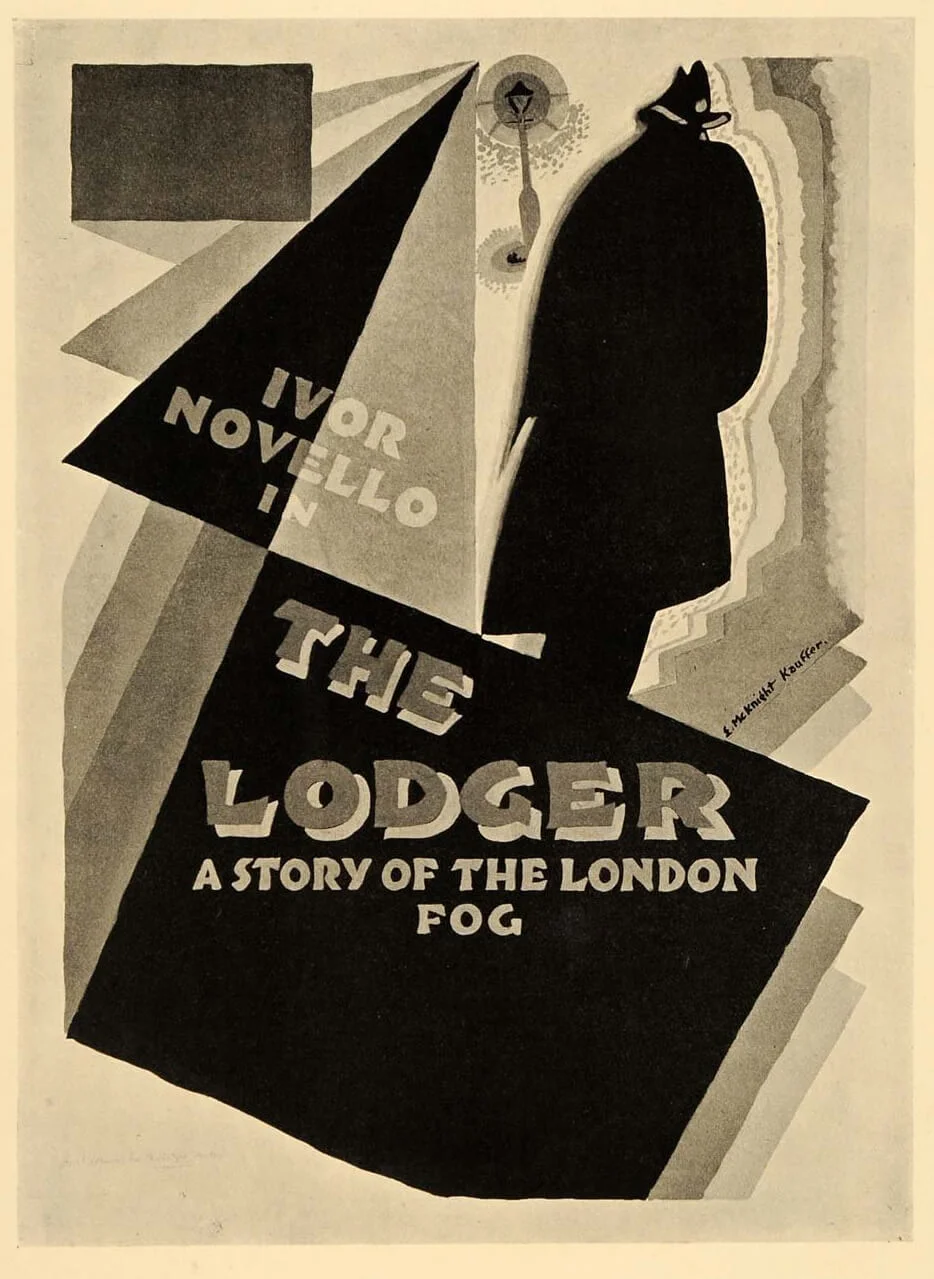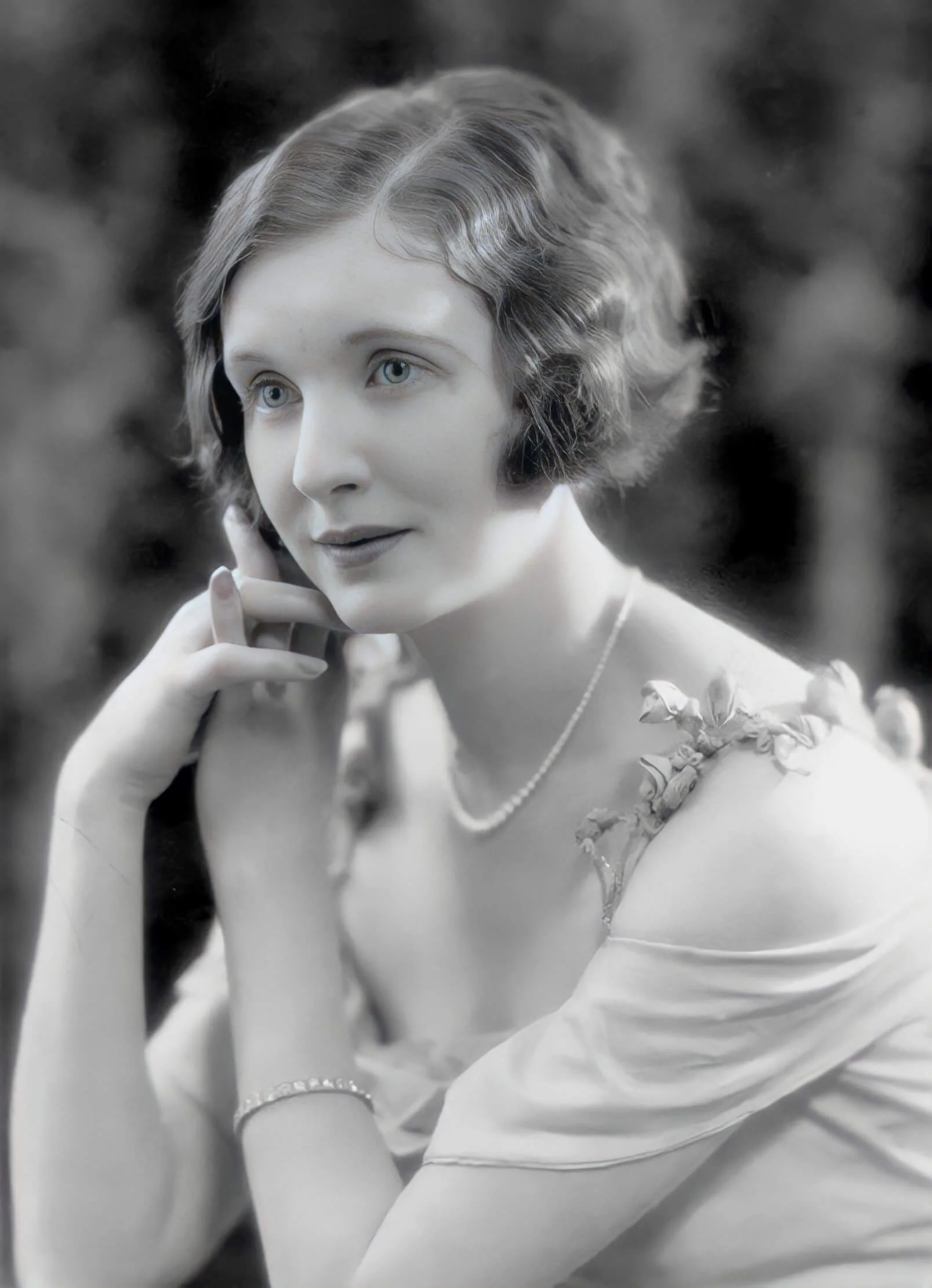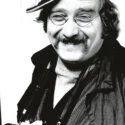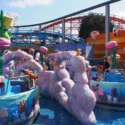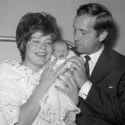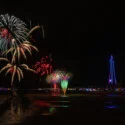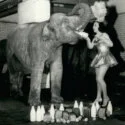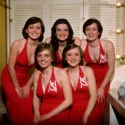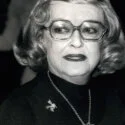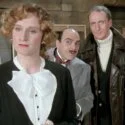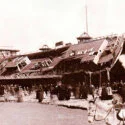June Tripp, born June Howard-Tripp on 11 June 1901 in Blackpool, was a British-American actress best known for her work on stage and in silent films. Often credited simply as June Tripp, she primarily performed in revue theatre but also appeared in several films, most notably starring opposite Ivor Novello in Alfred Hitchcock’s silent thriller The Lodger: A Story of the London Fog (1927).
In March 1929, she married John Alan Burns, 4th Baron Inverclyde, and moved to Castle Wemyss. She was mentioned as “Topsy” in Inverclyde’s account of his travels aboard the steam yacht Beryl around the Mediterranean that summer. However, by September 1930, she had relocated to Hollywood, marking the beginning of what would become long-term American residency. In November of that year, she sought an annulment of her marriage, claiming they had “never lived together as man and wife.” A Reno court granted her a divorce in August 1931, though in Britain she remained legally married until Inverclyde was granted his own divorce in December 1933. She returned to the British stage in 1932, performing in the musical Fanfare.
In August 1937, Tripp married Edward Hillman Jr., a Chicago department store heir she had first met in California years earlier. After a chance reunion in Paris, they wed in Cannes. Though they obtained interlocutory divorces in both December 1939 and March 1947, they ultimately remained together until Hillman’s death in 1966. By this time, they had long divided their time between residences in Beverly Hills and Santa Barbara. Tripp became an American citizen in 1951.
Although relatively unknown as an expatriate British film star, she appeared pro bono in the Hollywood wartime film Forever and a Day (1943), a tribute to British resilience. She also had minor, uncredited roles in A Song for Miss Julie (1945) and Les Misérables (1952), where she played the Mother Superior. Her most notable cinematic contribution in later years was narrating Jean Renoir’s film The River (1951). In 1960, she published her memoir The Glass Ladder, in which she vividly described her time at Castle Wemyss with Inverclyde and his severe housekeeper. She likened the experience to the Gothic atmosphere of Rebecca, drawing parallels with Judith Anderson’s chilling portrayal of Mrs. Danvers in Alfred Hitchcock’s 1940 film.
June Tripp passed away in New York City in 1985.
